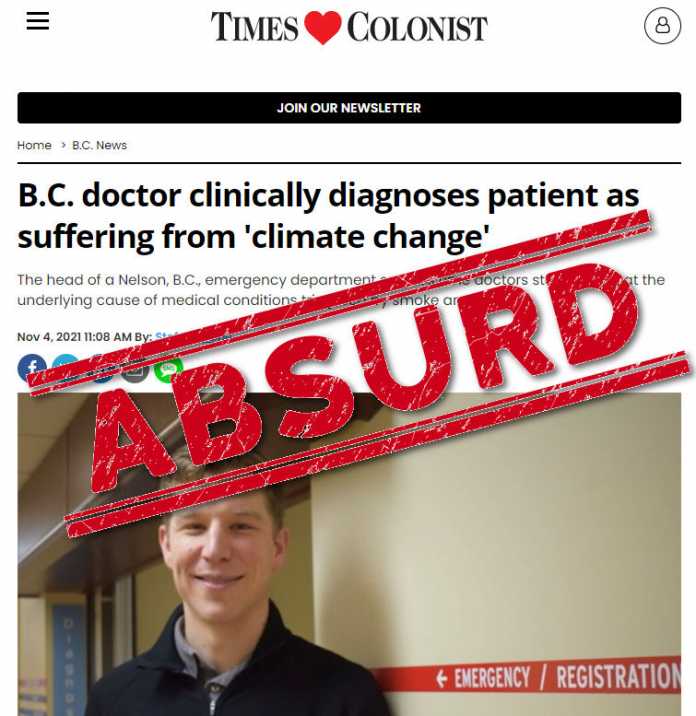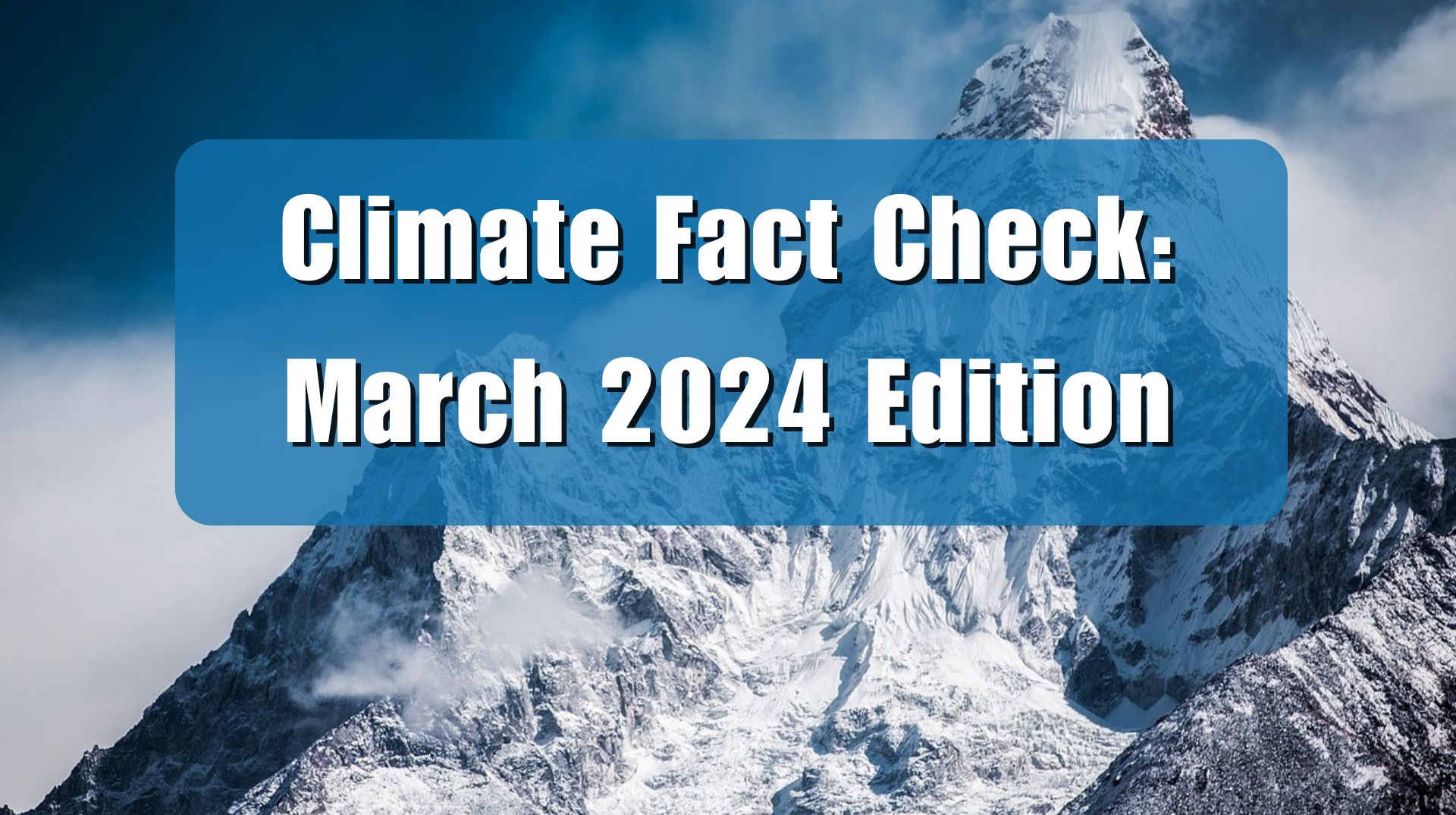A November 4th article in the Canadian newspaper, Victoria Times Colonist, reported, B.C. doctor clinically diagnoses patient as suffering from ‘climate change.’ On its face, this is an absurd claim. It is impossible to link any individual illness or death to climate change, a long-term trend, as opposed to an individual person’s physiological response to weather conditions.
During a heat wave in British Columbia, Dr. Kyle Merritt diagnosed an elderly patient suffering from multiple long-term medical conditions with “climate change.”
“She has diabetes. She has some heart failure. … She lives in a trailer, no air conditioning,” said Merritt of the senior patient. “All of her health problems have all been worsened. And she’s really struggling to stay hydrated.”
Merritt’s diagnosis was a political not a medical statement, and might be considered medical malpractice. Whereas, each of the patient’s conditions have identifiable medical treatments, there is no medical treatment for climate change. One must ask, did he throw up his hands and call for restrictions on fossil fuel emissions, or did he do his job and treat the patient’s symptoms and the underlying diseases which actually caused her health crisis.
Merritt clearly doesn’t understand the difference between climate change and weather. The National Oceanic and Atmospheric Administration (NOAA) clearly defines it:
“Weather reflects short-term conditions of the atmosphere while climate is the average daily weather for an extended period of time at a certain location. … Weather can change from minute-to-minute, hour-to-hour, day-to-day, and season-to-season.”
By contrast, the classical period recognizing a change in climate 30 years, as defined by the World Meteorological Organization (WMO).
In the case of Merritt, he is citing a record heat wave and wildfires as creating health problems for multiple patients in his hospital’s emergency room. From the article:
It was late June, and British Columbia was consumed under a heat wave that would soon go down as both the hottest and deadliest in Canadian history.
The head of the hospital’s emergency department, Merritt could see the aggravated toll the extreme heat took on patients battling multiple health problems at once, often with little money.
…
Like death by heat, doctors have traditionally struggled to clinically attribute mortality and severe illness to air pollution. For Merritt, this summer’s wildfire season changed all that.
When a patient came in struggling to breathe, Merritt knew the smoke — that hadn’t lifted from the region for days on end — had made a case of asthma worse.
For the first time in his 10 years as a physician, the ER doctor picked up his patient’s chart and penned in the words “climate change.”
“If we’re not looking at the underlying cause, and we’re just treating the symptoms, we’re just gonna keep falling further and further behind,” he told Glacier Media when asked why he did it.
Anyone should have compassion for people whose underlying medical conditions are exacerbated by non-optimal heat or smoke, but the fact is these health issues are short-term events driven by weather, not climate.
The heat wave was clearly a weather event, lasting about 3 days as a high pressure dome moved from west to east over the Pacific Northwest, driven by a unique set of meteorological conditions. Cliff Mass, Ph.D., a meteorologist at the University of Washington discussed his findings concerning the heat wave event extensively in an article, titled “Was Global Warming The Cause of the Great Northwest Heatwave? Science Says No.”
Mass found no trend consistent with “climate change” aka “global warming” and came to this conclusion:
“If global warming was producing extreme heatwaves in our region, such as the event last week, there would be a long-term trend towards more extreme high temperatures,” Mass wrote. “A single event does not reflect climate, only a trend or changes in long-term average do.”
Mass went on to examine the long-term temperature data reporting, “…there IS NO INCREASING TREND for more record high temperatures over our region during the past century. “
The wildfires were also a temporary phenomenon. NASA satellites have documented a global long-term decline in wildfires. NASA reports satellites have measured a 25-percent decrease in global lands burned since 2003. The objective data on heat waves and wildfires conclusively rule out Merritt’s claim that “climate change” caused health issues he witnessed.
Merritt put on his political pundit hat and conflated weather with climate. The recent heat wave and associated wildfires were short-term weather phenomenon and would only become an indicator of climate change if such occurrences saw an increase over a thirty years period, which they haven’t. The data shows no trend.
Merritt should stick to treating patients, and leave meteorology and climatology to experts trained in those sciences. After all, you certainly don’t see meteorologists and climatologists posing as medical professionals.
















